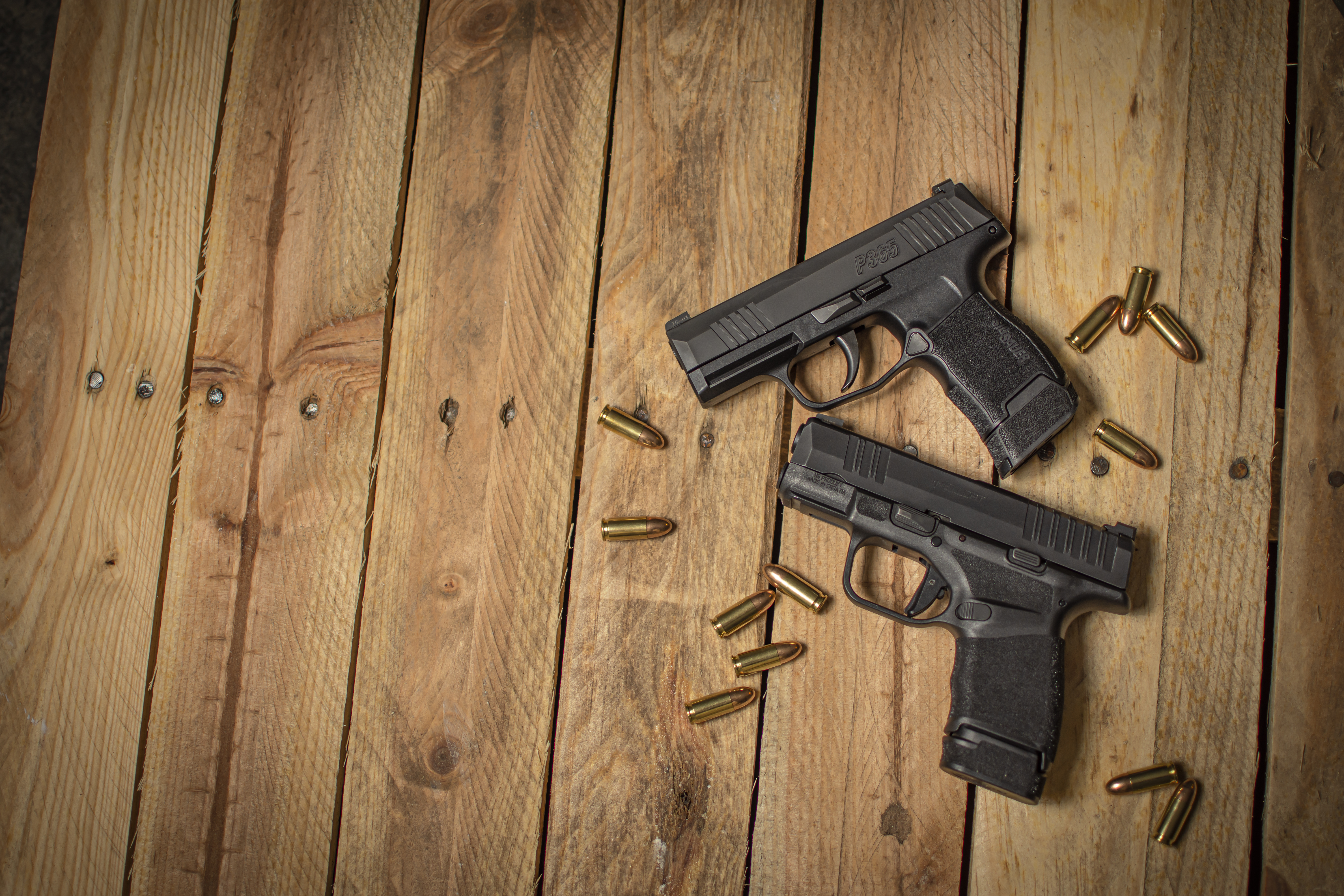
Here is some critical information to make sure you get the right gun and gear during this unprecedented event.
Forbes is reporting gun shops nationwide are seeing a sharp increase in sales particularly from first-time gun buyers as Americans brace for the worst amid the coronavirus pandemic. The NSSF confirmed that on Monday, NICS staff experienced an over 300% increase compared to this same time period last year. Ammo.com has reported a 792% increase in ammunition sales since February 23 when the search term “coronavirus” started gaining traction.
With states actively releasing inmates from correctional institutions and law enforcement announcing they will not be responding to service calls to limit physical contact with the public, it’s not hard to understand why we’re seeing people flocking to gun stores and panic buying guns, ammo, and gear. But with so many options and a rush to fill a growing demand for self-defense, how are people determining what they need?
Buying your first gun and making sure you have the right accessories, especially during an unprecedented event like this, can be intimidating but it doesn’t have to be. There are a few key things to consider that will the guesswork and stress out of the process so you can focus on other things, like how to deal with long lines at the pharmacy.
Let’s start with the basics:
Learn the Rules of Gun Safety
Before you ever pick up a firearm, commit the following four rules to memory:
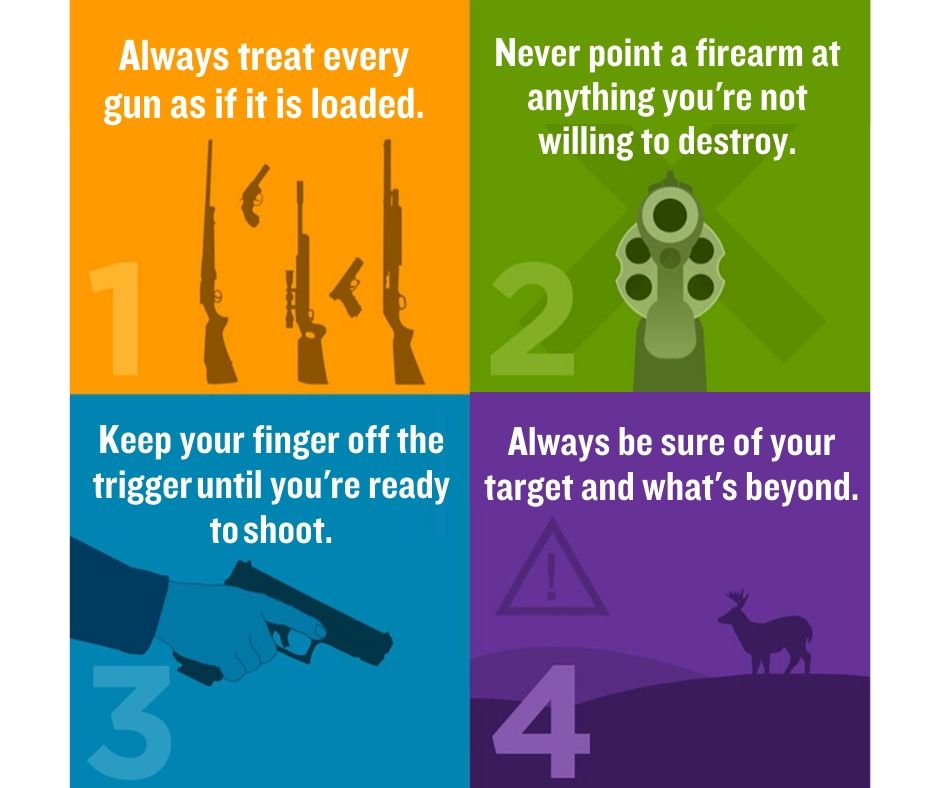
Following 100% of these rules, 100% of the time will keep you and those around you safe. It’s also important to teach your family members, especially children, that firearms are not ever to be played with. Gun Safety programs like Project ChildSafe and Eddie Eagle are great resources for gun owners with children in the home.
These rules were drilled into me as a child and I have instilled them into my own children, as millions of other gun owners have done as well, and we cannot stress their importance enough. Please always follow the rules of gun safety.
How do I Know Which Gun is Right For Me?
When it comes to buying the right gun, remember: you don’t fit the gun, the gun needs to fit you. If you can’t get into a range to shoot a gun before you buy it (which I strongly recommend), you at least need to take physical hold of it to assess the grip. It’s essential that the firearm fits your hand and feels good in a strong shooting grip.
Handguns can be difficult to shoot accurately and the best way to combat recoil and ensure swift sight alignment is a proper grip. The grip used by most professional and serious shooters is referred to as “thumbs forward.” The web of your primary hand should be high on the back of the gun and fit snugly under the back strap. A high, tight placement paired with a firm hold around the grip with your primary hand is then supported by wrapping your non-dominant (support) hand around it with your pointer finger up tight against the trigger guard.
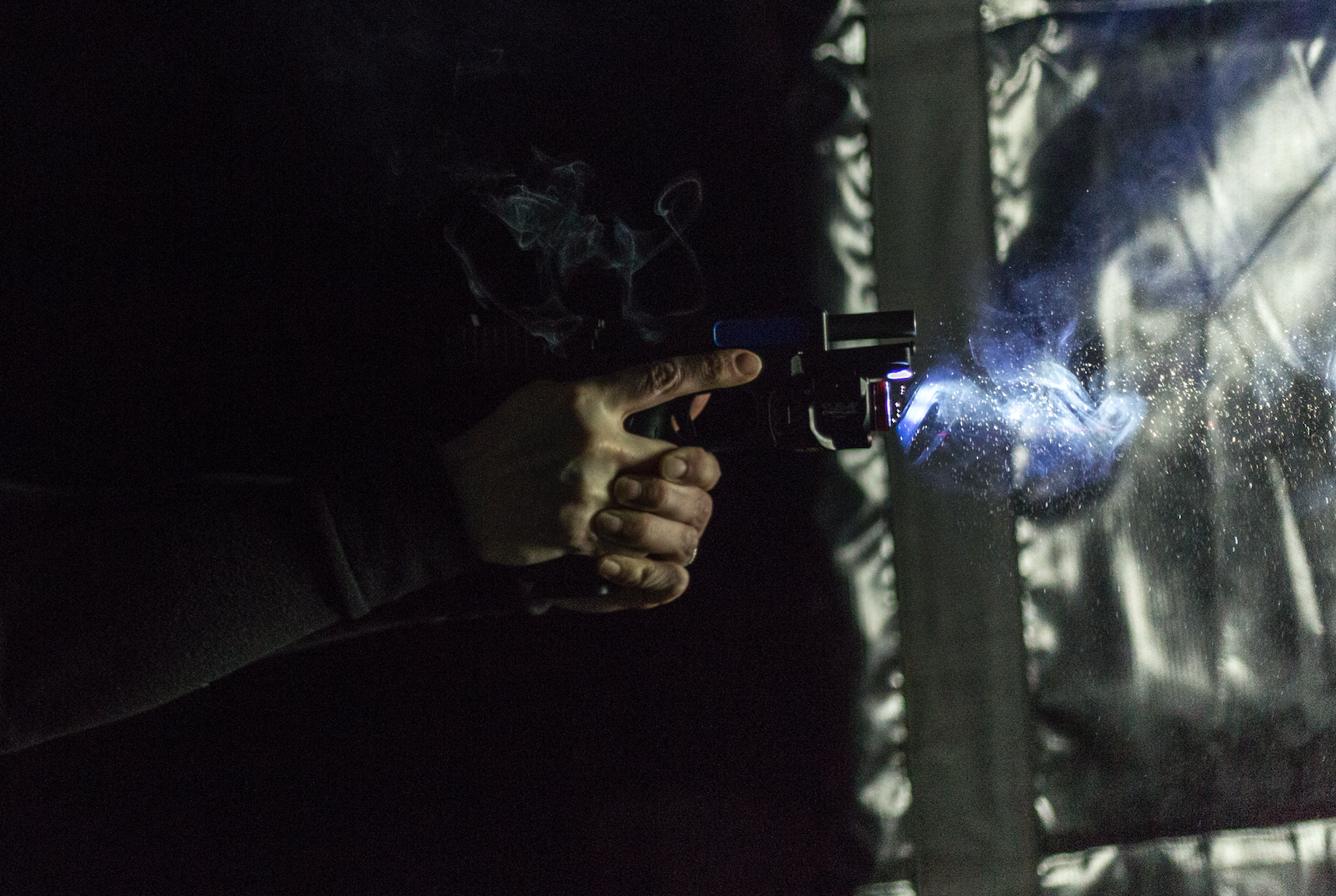
As you grip the gun with your strong hand, your thumb should be pointing down the slide. Your support hand will have an equally firm grip which allows the large muscle of your thumb to settle up against the gun. This, in turn, will create a full 360-degree grip with no weak spots or openings which is essential not only accurate shooting but to fast follow-up shots as well.
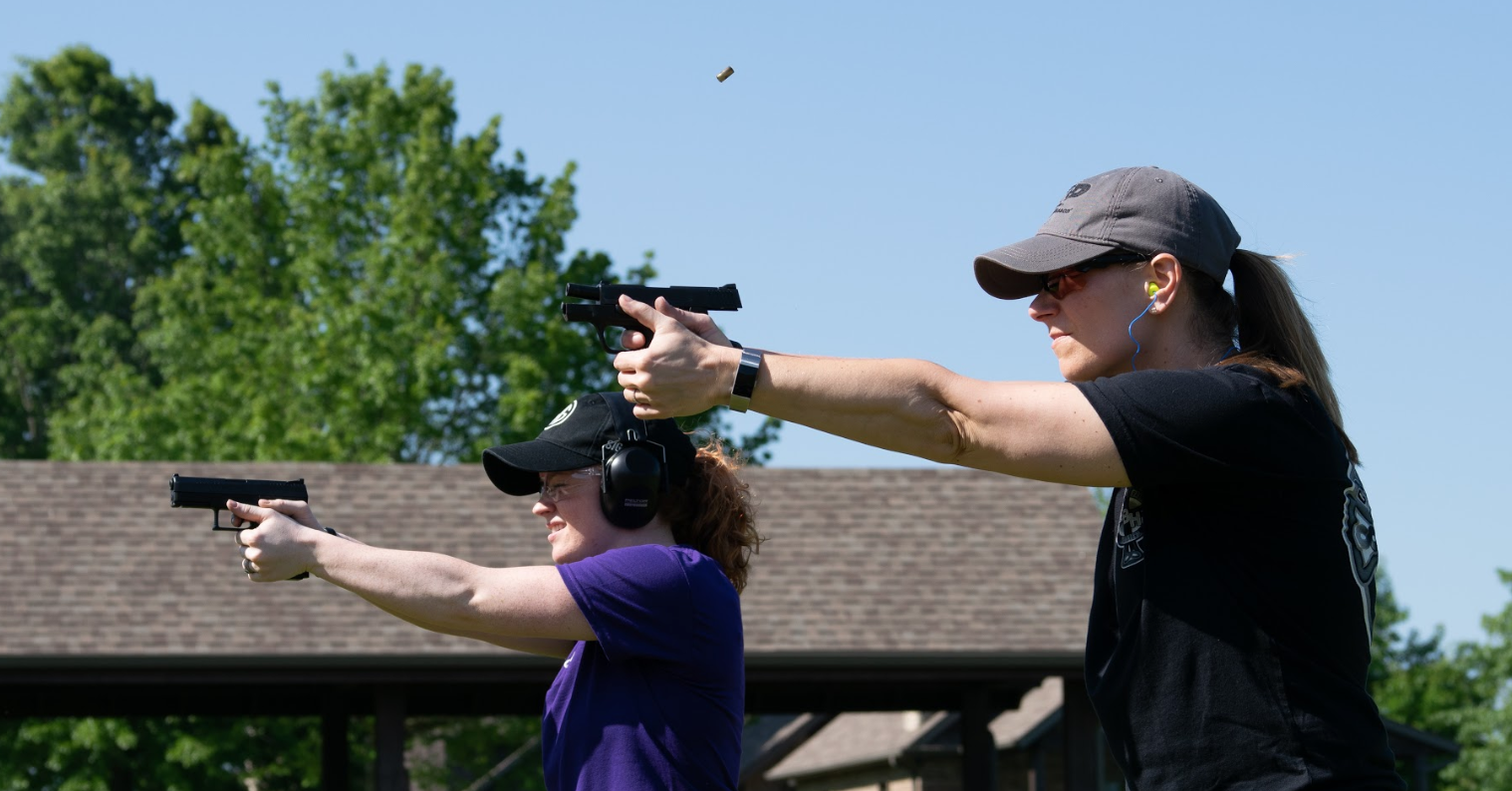
There are so many great choices for concealed carry guns on the market today – Sig Sauer P365, Smith & Wesson M&P Shield, Glock 43, Walther PPQ, Springfield Hellcat, to name a few – it’s just a matter of finding one that fits your grip a’la Goldilocks: just right.
Okay, You Have a New Gun – Now What?
No matter which state you live in, you need to make sure you’re following local and federal laws. That means knowing the law, being comfortable drawing and shooting your firearm, and becoming confident in your ability to effectively defend yourself or protect those around you.
Taking a basic pistol or concealed carry course is smart, even if it isn’t required by the state, particularly since trainers have real-world experience in your community and can share practical advice of their own and from former students.
That being said, we also understand that right now, you may not be able to take a concealed carry class much less a basic pistol course. Most gun stores will walk you through at least a basic understanding of your firearm before you leave the store if you ask them to. You can also ask them to recommend a reputable, certified trainer in your area and reach out to them directly – they may have options available or be willing to work with you to get you trained.
Since outings to the gun range may soon be restricted, you may be able to practice target shooting at your home if you live in an area that will allow it. Those who live inside city limits can invest in a MantisX system to practice your shot, perfect your grip, and improve your trigger pull from home. This smart training system attaches to the rail of your handgun and connects to an app on your phone where shooters complete basic marksmanship drills to gain feedback on how to become a better shooter!
Books and videos are good, training is better, a combination of them is best, and multiplying them with practice practice practice is ideal.
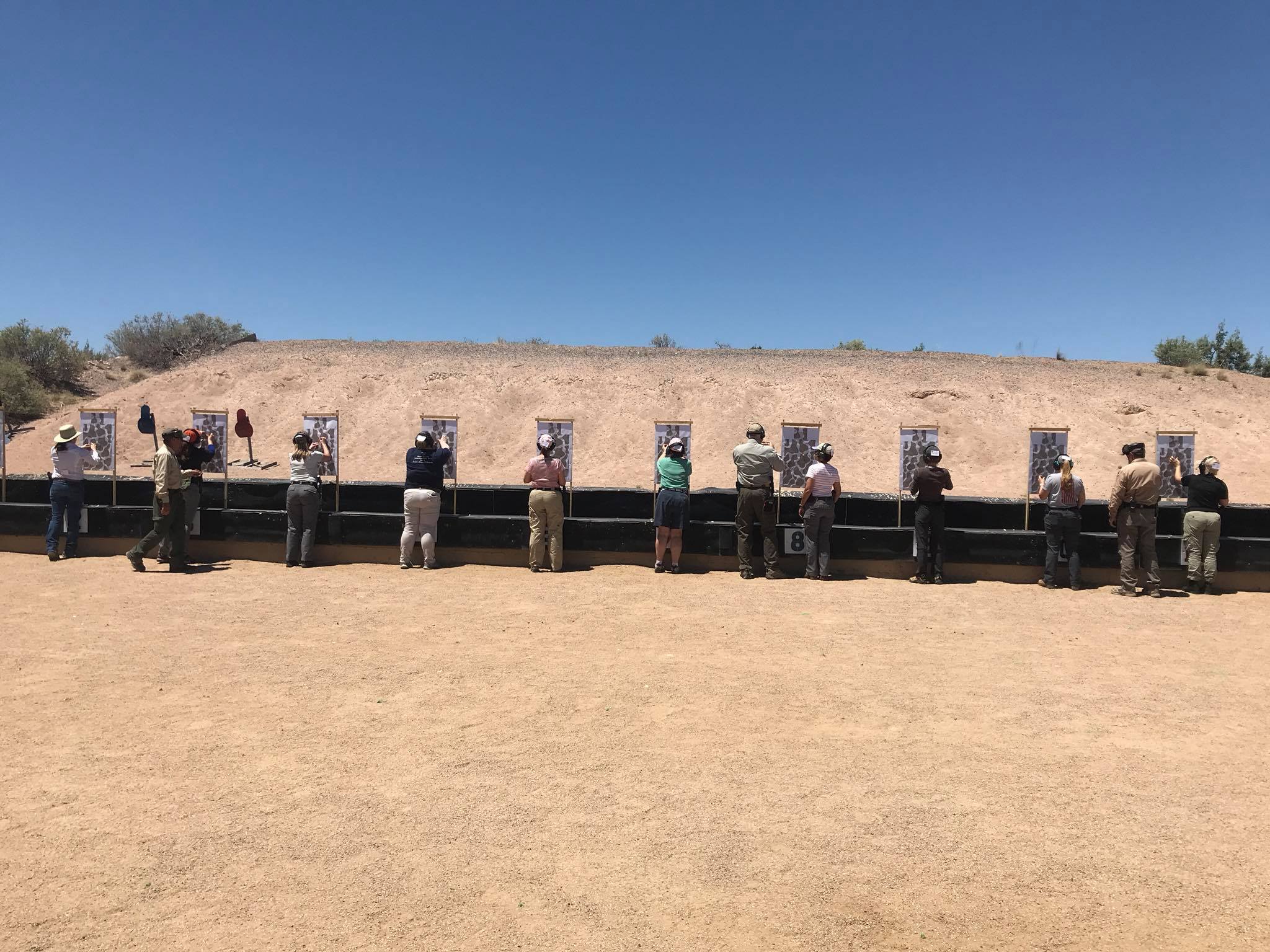
How Do I Carry My New Gun?
You’ll need to think about how you plan to carry your new handgun to make sure you get the correct holster. Carrying inside the waistband (IWB) or outside the waistband (OWB) is often determined by your plans, but be sure that you remain compliant with the law and policies of the places you plan to go while carrying. Having one holster that can convert from IWB to OWB and vice-versa like The Reckoning Holster is a great, economical solution to real-world restrictions.
Whether you’re open carrying around the house or carry concealed to run errands, you need to make sure your method of carry functions safely. The most important thing to look for in a holster is that it protects the trigger with a hard cover. You don’t want to carry in any way that would allow the trigger to be passively engaged by any means.
Your holster should also be molded to fit your gun snuggly. Hybrid holsters like the ST2 and MT2 provide a comfortable leather backer to spread the weight of the firearm across your body while the curve of your body pushes the gun into the Kydex pocket which also has adjustable retention.
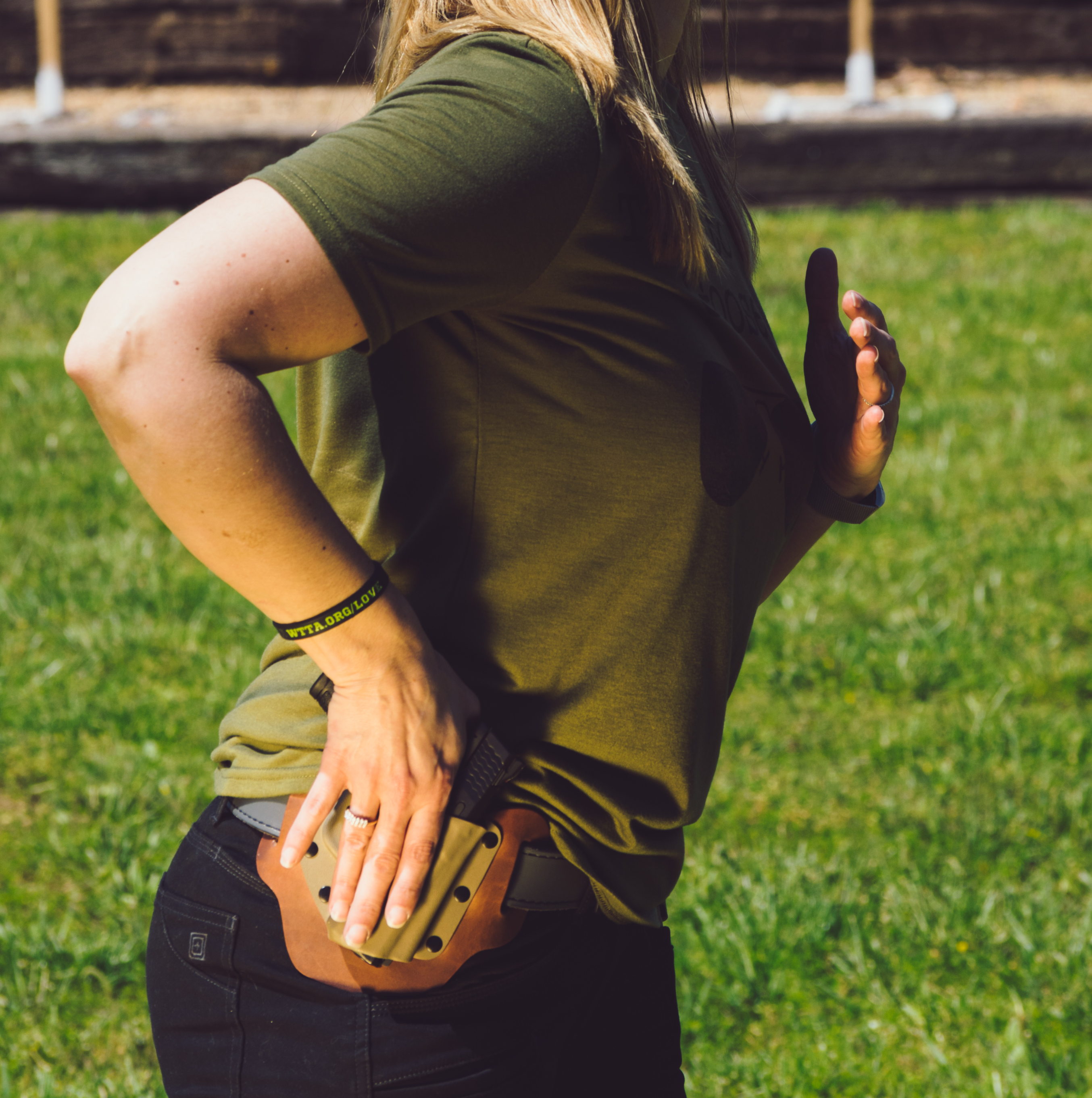
Regardless of whether you’re carrying IWB or OWB, starting with a quality gun belt is also essential to the security of your gun and successfully drawing from your holster. Make sure you invest in one made specifically designed to be used as a gun belt to ensure you have a solid everyday carry (EDC) setup.
Modular options like a Belly Band, Pac Mat, and Purse Defender are also available for anyone who may not be able to carry on body with a traditional holster.
What Accessories Do I Need?
During this unprecedented event, don’t focus on everything you might need to go with your new gun, just make sure you have the essentials. Things like a quality belt and holster, self-defense ammunition (and training ammo, if you’re able to shoot it) in the correct pistol caliber, safe storage for your firearm, eye and ear protection, and a small cleaning kit are really all you need to start out.
Another accessory you should have is self-defense insurance. A membership with USCCA provides gun owners with exceptional training tools, topical discussion boards, 24/7 access to their Critical Response Team, and more while providing up to $2 million in civil defense and damages protection. It’s a solid investment into your commitment to be responsibly armed and gives you peace of mind knowing they have your back.
Putting Everything in Action
Owning and carrying a firearm is a responsibility no one should take lightly. In times of uncertainty, it’s understandable that people are looking for ways to protect themselves and their families but keeping a level head and staying committed to being responsibly armed and getting properly trained is exceptionally important.
Ask gun owners for referrals, look into resources from the USCCA, find a reputable instructor in your area, join a shooting club or gun range and, if classes are not currently being held, ask if they have alternate training options available. Personally, I can’t imagine any gun owner who wouldn’t help if asked for advice, so don’t be afraid to ask!
I encourage everyone to take the necessary steps to ensure their safety and protect their families and hope that you do it safely and responsibly!
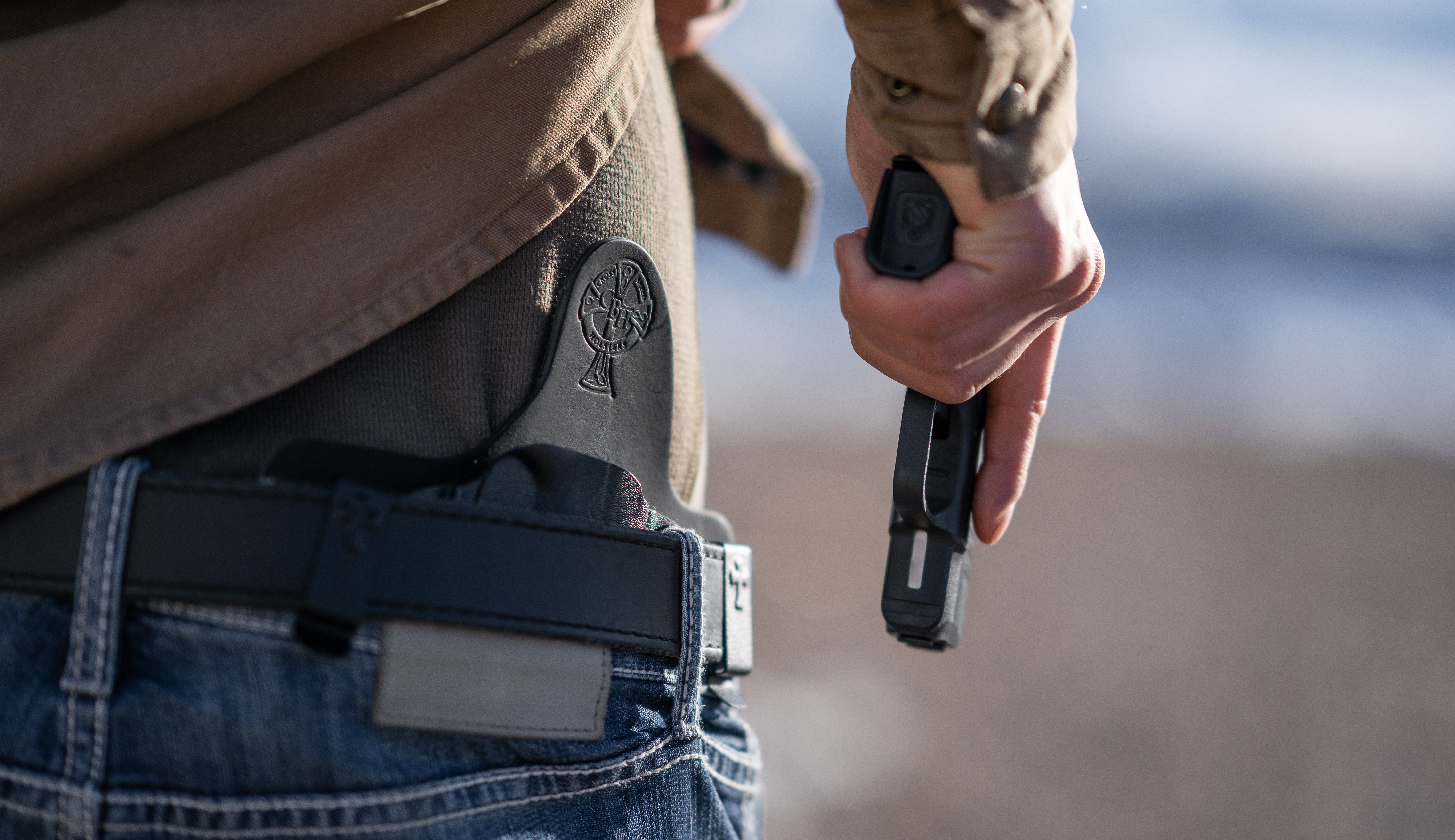
Sound Off!
Is there anything else you think new gun owners should know or have to start out? What advice would you give them if training courses and gun ranges are not available to them?
Please share your advice in the comments below, I’m sure they’ll appreciate your input!
ABOUT THE AUTHOR:
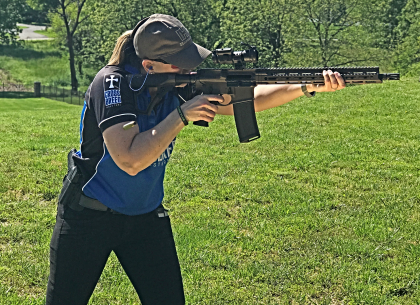 Jenn Jacques is a fierce 2A defender, concealed carry advocate, fishing enthusiast, avid hiker, hunter, and an all-around great gal with a gun. As a former Private Detective, Jenn put those skills to good use, fighting for gun rights in her home state of Wisconsin before becoming the first female editor of a 2A/Gun News site and moving on to become a publication writer, popular multi-media guest, and respected news expert.
Jenn Jacques is a fierce 2A defender, concealed carry advocate, fishing enthusiast, avid hiker, hunter, and an all-around great gal with a gun. As a former Private Detective, Jenn put those skills to good use, fighting for gun rights in her home state of Wisconsin before becoming the first female editor of a 2A/Gun News site and moving on to become a publication writer, popular multi-media guest, and respected news expert.
Jacques has completed hundreds of hours of firearms training including USCCA’s Street Encounters and Low Light/No Light Training, she is a graduate of the Gunsite Academy, and was named a S.A.F.E. Summer Local Champion of Firearm Safety by NSSF’s Project ChildSafe.

A staple in the firearms industry since 2009, Jenn is proud of her professional accomplishments and to be raising her three children with her husband John who is also an avid hunter, 2A supporter, and an amazing father.
You can find her on Twitter, Facebook, Instagram, or shooting at any number of gun ranges across this great country.
©MTC Holsters, LLC and CrossBreed Holsters Blog, 2020.
Unauthorized use and/or duplication of this material without express and written permission from this site’s author and/or owner is strictly prohibited. Excerpts and links may be used, provided that full and clear credit is given to Jenn Jacques and the CrossBreed Blog with appropriate and specific direction to the original content.
![]() TAKE OUR ONLINE SURVEY NOW!
TAKE OUR ONLINE SURVEY NOW!

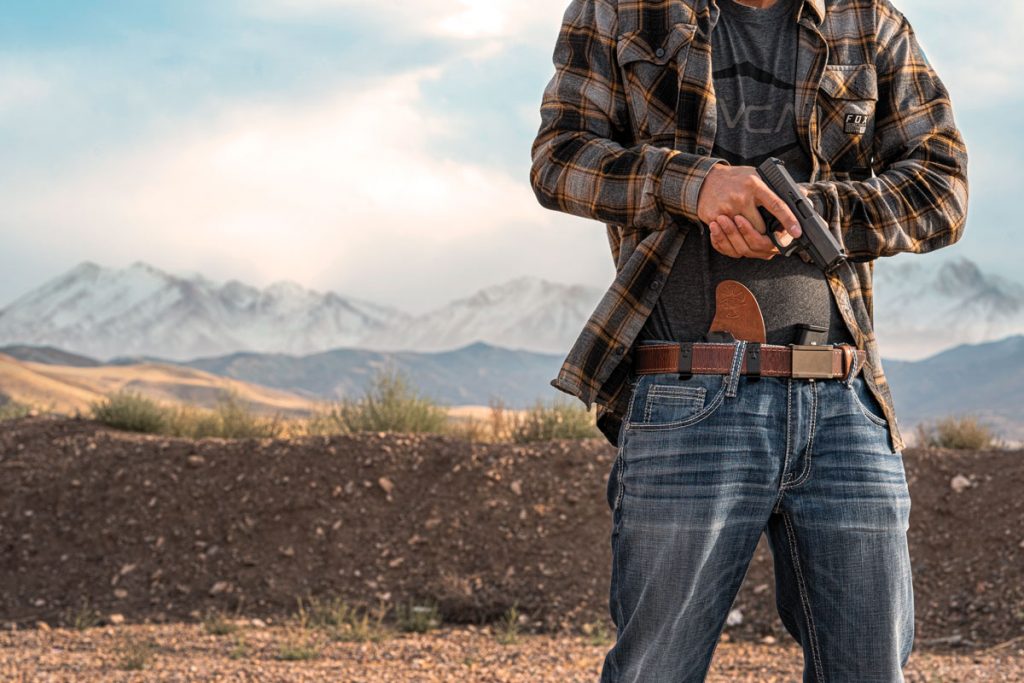

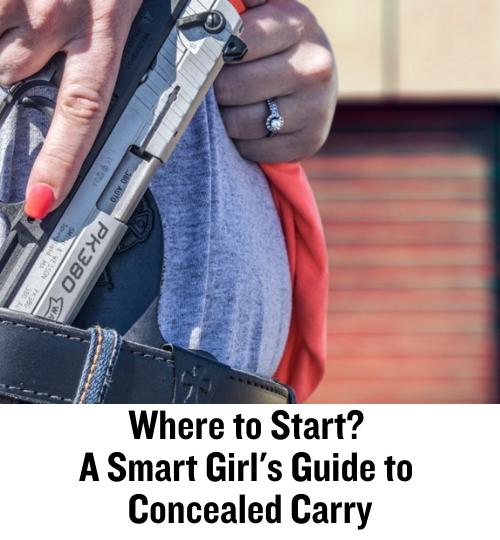
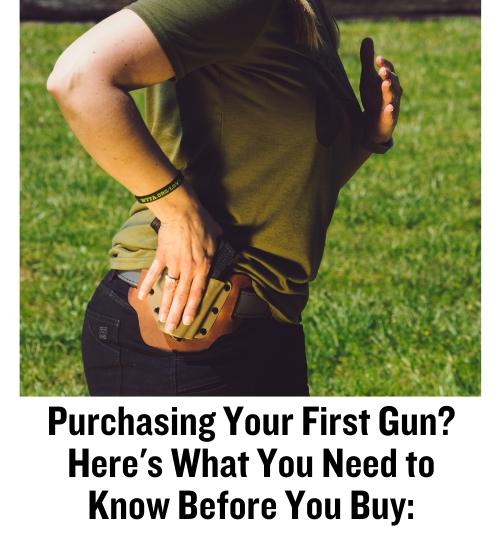
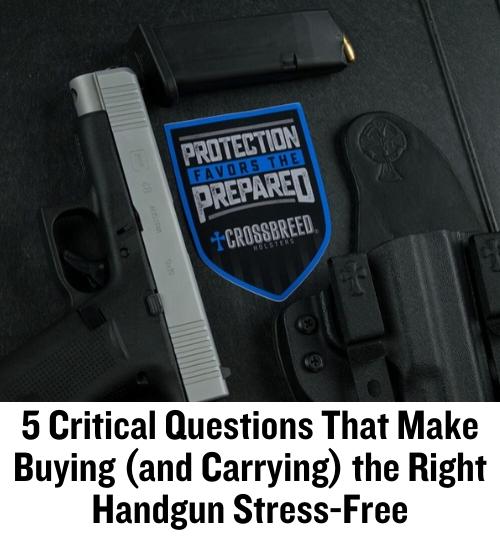
These are great tips, I appreciate you putting these out there for new gun owners! Would love the opportunity to mentor anyone looking for help – you’re right, all they have to do is ask.
Solid info here
I am buying my first gun (YAY) for self-defense and there was a lot I didn’t know. Heading to the gun store now but I’m not as worried as I was before I read this. Thank you!!
Great information here, I hope my girlfriend is paying attention!!
I liked your tip of asking gun owners for referrals before buying a weapon. My brother is wanting to get into guns and he was wondering what he should look for before purchasing his first firearm. I’ll tell him that he should ask other gun owners for referrals before deciding on a firearm to buy.